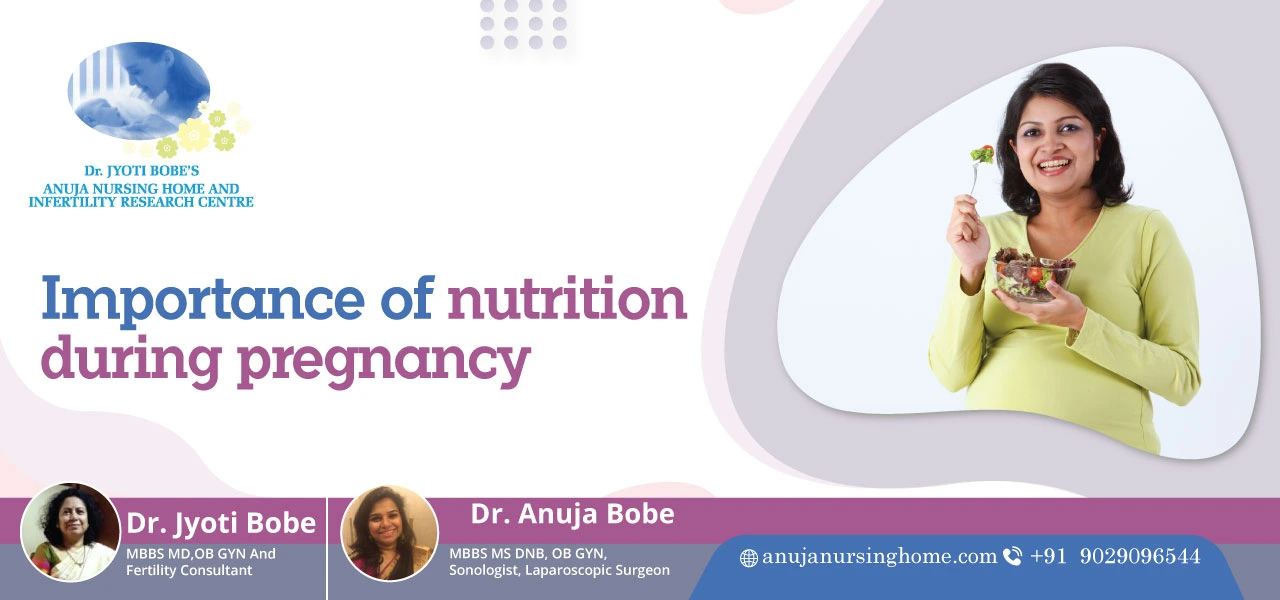You need the same nutrition during pregnancy as you’d normally. There are a few exceptions, though. Pregnancy is physically demanding. With a new life growing inside you, it’s essential to ensure that you and your baby are properly nourished. This promotes fetal growth, minimizes the risk of complications, and ensures the mother’s well-being. An obstetrician in Navi Mumbai will give you a diet chart to follow for nine months. In the meantime, let’s explore the importance of nutrition during pregnancy.
Key Nutrients Required During Pregnancy
Here are a few vital nutrients that a pregnant woman should include in her diet.
i) Folic acid:
Folate prevents neural tube defects in the fetus and the risk of low birth weight and premature birth. Fortified cereals, green leafy vegetables, and citrus fruits are some natural sources of folate. Supplementation is recommended if you don’t get adequate folic acid from natural sources.
ii) Iron:
Your body needs double the amount of iron during pregnancy than your pre-pregnancy requirements. The best source of iron is red meat, as it’s absorbed easily. Spinach and beans are other good sources. It’s best to take adequate vitamin C to ensure proper iron absorption.
iii) Calcium:
Ideally, pregnant women need 1000 milligrams of calcium a day to promote the baby’s bone development while maintaining bone health. The best sources of calcium are dairy products and green leafy vegetables.
iv) Protein:
A pregnant woman needs 71 grams of protein to support fetal development. Increase your consumption of eggs, seafood, lean meat, beans, nuts, peas, and soy products to get adequate protein.
Besides, your body needs omega-3 fatty acids, vitamin D for calcium absorption, and Iodine and fiber.
Benefits of Proper Nutrition
a) Fetal Development:
Adequate nutrition with essential vitamins and minerals in your diet will ensure proper fetal development.
b) Reduces Pregnancy Complications:
Nutritional deficiency during pregnancy is linked to increased risk of anemia, preeclampsia, gestational diabetes, low-birth weight baby, premature birth, and other complications.
c) Promotes Maternal Health:
A good diet won’t just help you stay fit and healthy during pregnancy but also promotes faster postpartum healing.
Tips for a Healthy Diet
Pregnancy brings a lot of symptoms, some of which can make it difficult to keep food down. Nausea, vomiting, and heartburn, for instance, can interfere with your dietary habits. Here are some tips that may help:
- Eat smaller, more frequent meals, preferably 5-6 times daily, but in smaller quantities.
- Get a pregnancy diet chart from a maternity centre in Navi Mumbai.
- Drink plenty of water to keep yourself hydrated
- Take your prenatal vitamins regularly
- Do not eat undercooked, unpasteurized, or raw food
- Do not consume alcohol and tobacco
Common Nutritional Challenges
Morning sickness is one of the biggest challenges for pregnant women. Some may have weird cravings and aversions, and others may not feel like eating anything. Fortunately, these issues last only the first three months in most cases. Talk to your doctor if you can’t eat. They will recommend medicines for nausea, heartburn, and other symptoms. They will also prescribe essential vitamins to ensure proper nutrition.


